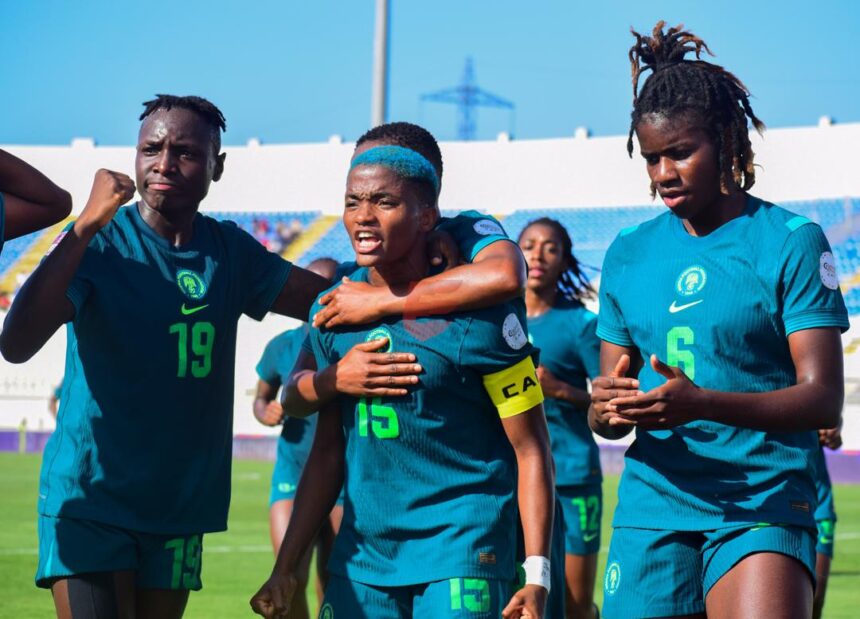Nigeria’s Super Falcons edged out South Africa’s Banyana Banyana in a fiercely contested semi-final clash at the 2024 Women’s Africa Cup of Nations (WAFCON), securing a dramatic 2-1 victory on Tuesday night to advance to the tournament final. Head coach Justin Madugu praised his team’s resilience in a match he described as a “tough game,” acknowledging the intensity of a rivalry that has defined African women’s football for years.
The Super Falcons dominated early proceedings, with captain Rasheedat Ajibade breaking the deadlock in the first half after a composed finish. However, South Africa responded after halftime when Linda Motlhalo leveled the score from the penalty spot, intensifying pressure on the nine-time African champions. Nigeria’s decisive moment arrived late in the game, as defender Michelle Alozie fired home the winner, sparking jubilation among players and fans.
Madugu, addressing reporters post-match, emphasized the significance of the hard-fought triumph. “Everyone knew it wasn’t going to be an easy game,” the 61-year-old coach stated. “What we desired was to win, and eventually that happened. We’re happy to be playing in the finals.” His remarks underscored Nigeria’s determination to reclaim continental glory after missing out on the WAFCON title in 2022, when South Africa clinched their maiden trophy.
The Falcons’ path to the final has been marked by strategic discipline and tactical adaptability, with veterans like Ajibade blending seamlessly with emerging talents. South Africa, meanwhile, showcased their own growth, testing Nigeria’s defense repeatedly in the second half. The match’s physicality and high stakes highlighted the rising competitiveness of African women’s football on the global stage.
Nigeria now prepares to face Morocco, tournament hosts and 2022 runners-up, in Saturday’s final. The Atlas Lionesses, who secured their spot by defeating Zambia, will draw on home support in what promises to be a historic clash. For the Super Falcons, victory would extend their record as Africa’s most decorated women’s national team, while Morocco aims to claim a first-ever WAFCON title.
As regional powerhouses continue to elevate the quality of women’s football across the continent, Saturday’s final not only crowns a champion but also signals Africa’s burgeoning influence in the sport. With global attention turning to the decider, both teams carry the aspirations of their nations—and the potential to inspire future generations of players.
